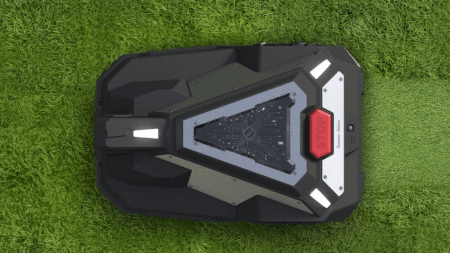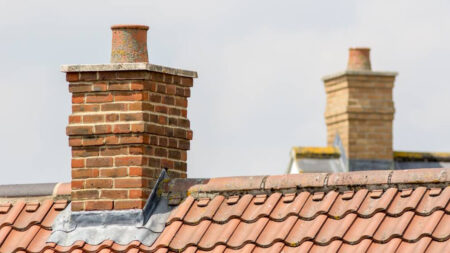Keeping your gardening tools in excellent condition is essential. In most cases, the health of your garden, be it a kitchen or flower garden, often depends on the state of the tools you use, like pruning shears, weeders, digging shovels, and hand trowels, among others.
Properly working tools will make gardening easier, while damaged ones will make it difficult. One way of ensuring their efficiency is proper care and maintenance. But how do you care for and maintain garden tools? Well, here’s a guide:
Clean the Tools After Each Use
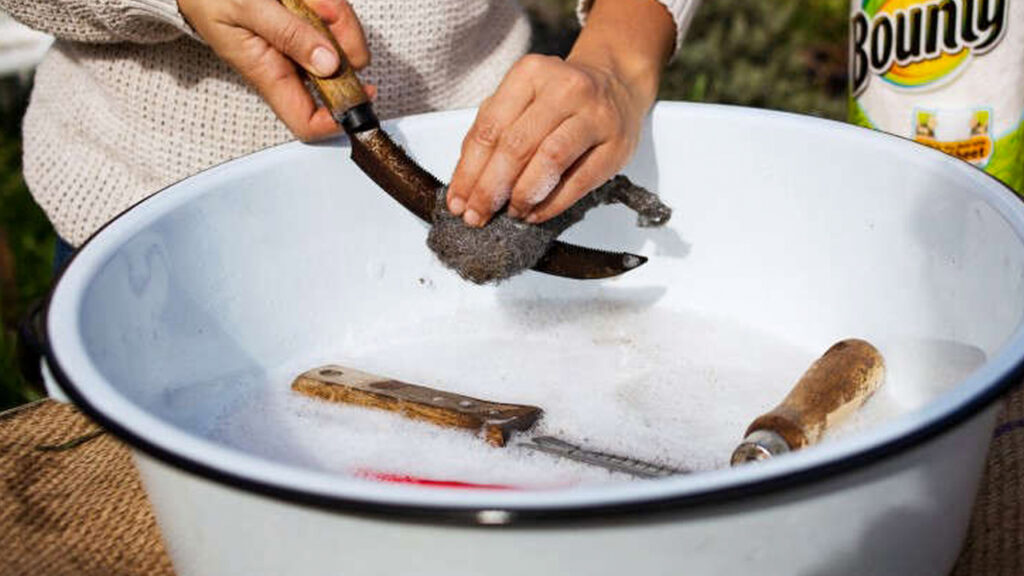
People generally postpone the idea of cleaning their garden tools until a week or so after using them. It’s a practice that’s not advisable. Without regular cleaning, dirt will sit and rack up on the tool. Removing this dirt will prove challenging; the dirt might also interfere with the tools’ effectiveness. Therefore, it’s important to clean your garden tools thoroughly after each use. After cleaning your tools, ensure you air-dry them or use a piece of cloth to soak up the moisture.
It might seem exhausting, but it isn’t. All you have to do is spray your tools with water using your garden hose. Ensure the water is at high pressure. Where the mud is stuck, use a brush to scrape it off and wipe it dry with a rag.
Alternatively, soak your tools in dishwashing soap mixed in hot water for 15 minutes. Suppose your tools feel sticky after cleaning, there’s a possibility it has sap from your plants. Dip a cloth in turpentine and wipe off the tool to help remove the sap.
Disinfecting your gardening tools should also be part of your cleaning regime. It’ll prevent the transfer of bacteria from one part of your garden to another, which can interfere with the health of your soil and plants.
Store Them in Dry, Protected Area
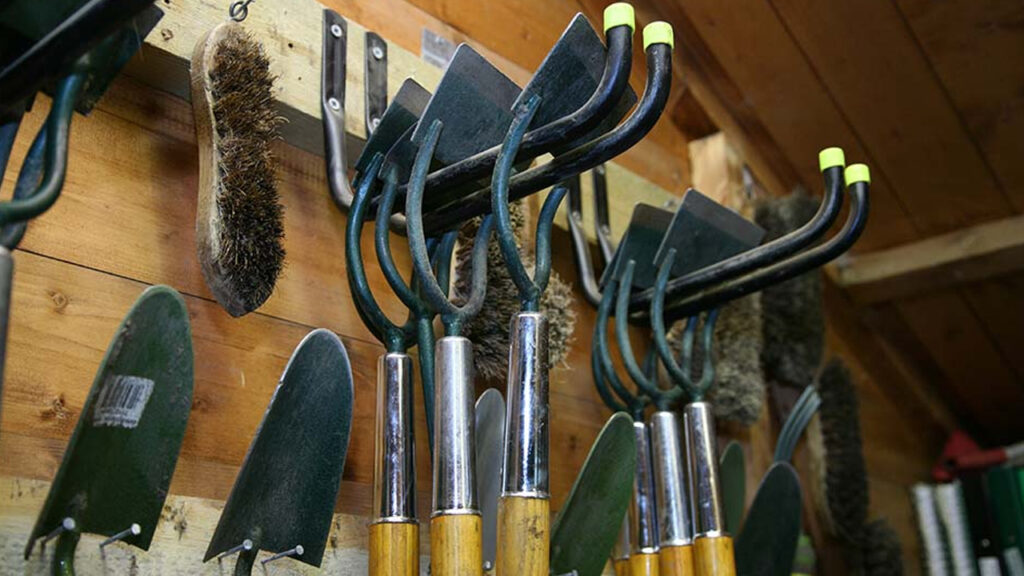
Never leave your tools unattended outside! Storage is an important aspect of tool maintenance. In most cases, there are seasons when you do a lot of gardening and others when you don’t. That’s why it’s important to factor in storage: Where shall you store your tools when you aren’t using them?
Dry the gardening tools thoroughly before storing them. Wet tools can accumulate moisture, which can cause rust and damage. An ideal storage place is a garden shed or a dry corner of a garage, which can host your tools and other gardening supplies like fertilizers. As you build garden sheds, ensure it has a strong foundation and is large enough to hold the number of tools you have. It should also be well-ventilated and dry at all times.
These conditions will prevent the deterioration of your tools, e.g., through rusting. It will help to add storage shelves to avoid placing the tools on the ground. For large garden tools, drill nails into your shed’s framework, on which you’ll hang them; the smaller ones can then go on the shelves. Check out more garden tool storage ideas.
Inspect for Rust and Treat it
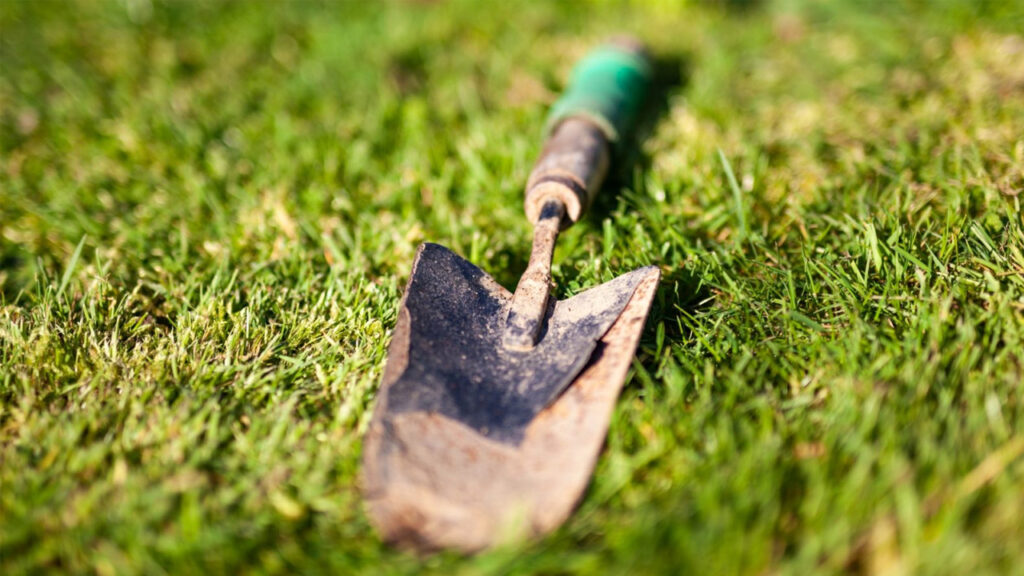
One of the issues that arises with metal garden tools is rust. It is an issue you want to manage first up. Rust occurs when metal reacts with water and oxygen. Therefore, one way to prevent and reduce rust is by creating a barrier between metal, water, and oxygen.
You can do this by mixing damp building sand with linseed oil or any other vegetable oil at your disposal. Once ready, dip your metal garden tools, with the cutting edges deep in the mixture. You can store them here or remove them after an hour. The linseed oil will coat your tools, creating the barrier you want from oxygen and water.
Suppose your metal garden tools already have rust and replacing them isn’t an option. There are various solutions you can use to remove rust. One way to do this is with white vinegar from your kitchen: soak your rusted tool in the vinegar for three to four hours. Remove and scrub off the rust; it’ll come off easily.
Alternatively, you can use baking soda, especially where the tool is large and you don’t have enough vinegar to soak them. Mix a sizeable amount of baking soda, depending on your tool’s size, with water to make a paste. Let it sit for an hour or so, and scrub it off. Check out our post about removing rust stains from metal furniture to know more methods.
Check for Signs of Wear or Damage
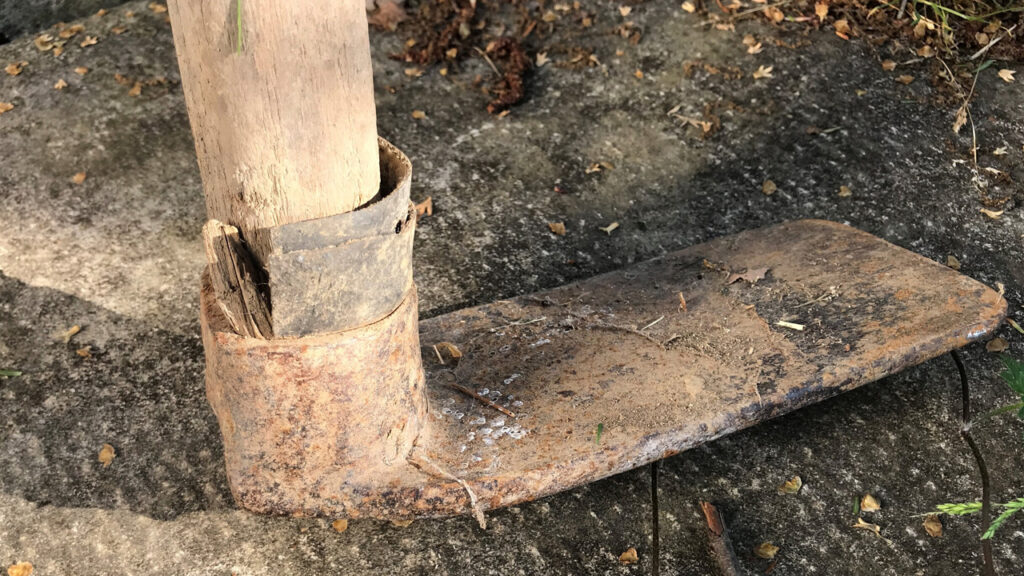
It is equally important to inspect and maintain your garden tools regularly. Unvarying checks can help identify early signs of wear or damage, which can affect the tools’ performance and safety.
During an inspection, look for any breakage, bent part, or build-up of rust or corrosion. Checking through sharper tools, look out for dull or damaged blades and chipped edges. Make sure you also check for the proper functioning of all moving parts, including hinges and gears.
On noticing any abnormality, get them repaired or replaced (depending on severity) and ensure that the tool(s) is in good working condition all the time.
Also Read: Garden Pathway Design Ideas to Landscape the Way Home
Keep Tools Sharp, Ensure Effectiveness
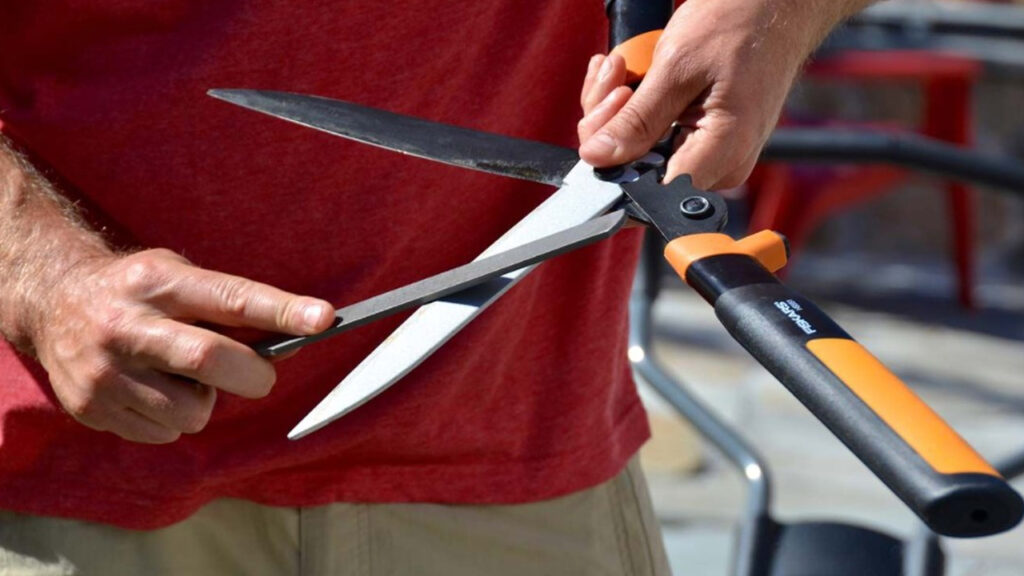
One of the reasons to care for and maintain garden tools is to ensure they meet your needs for a long time. Therefore, keeping the blades of your cutting tools sharp ensures they work effectively and efficiently.
Continually using your pruning shears, weeders, and other cutting tools makes them blunt over time. Therefore, it’s important to sharpen them. You can use a file or a whetstone to do this.
Most people make a mistake while sharpening their tools that only leaves them dull and ineffective for gardening. It happens when they file their garden tools back and forth instead of in only one direction. Don’t make the mistake; sharpen your garden tools one way only. It is also imperative to use specific tools for their intended purpose only. Using tools for something other than what they are meant for can cause damage and shorten their lifespan.
Oil Tools for a Longer Lifespan
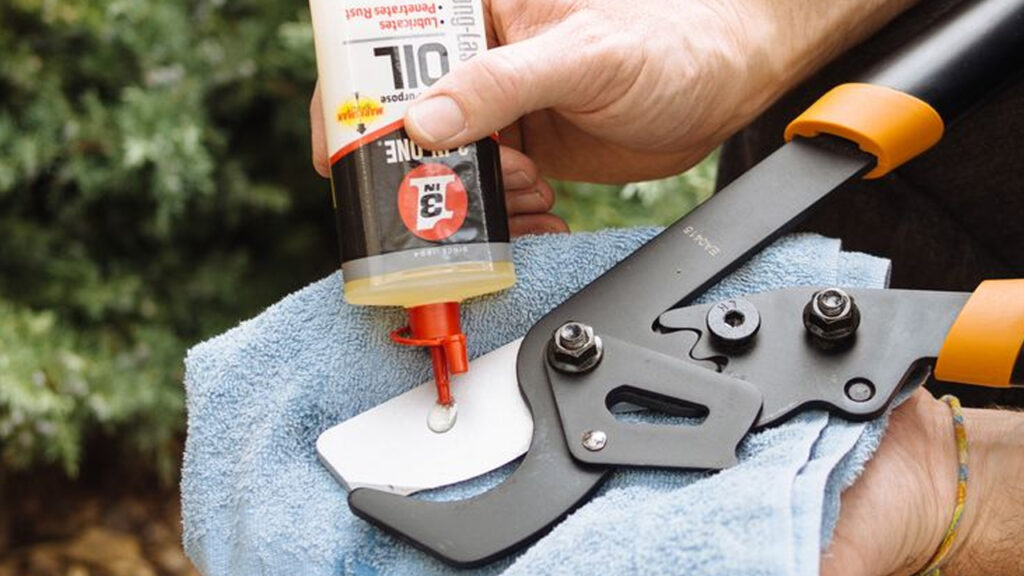
Oiling is an important step in caring for your garden tools. As stated earlier, it’ll help keep rusting at bay. However, it’s also useful in taking care of your moving tools like pruning shears. You want to put a drop or two of oil at the intersection of the blades, just like you’d oil your pair of scissors.
Oil all the moving parts of your tools occasionally. You can follow the routine after each use as well if you’re into heavy work. Light oiling or spraying lubricant on hinges, gears, and other moving parts, helps keep them lubricated to function smoothly, thus prolonging their lifespan.
It’s advised to oil the wooden handles of your garden tools as well. The oil will prevent handles from cracking and drying, situations that make it challenging to use the tools without injuring your hands. Oiling will also prevent the wood from absorbing moisture, which can lead to rotting.
Additional Tips
- Take a control of humidity of garden tool storage
- Keep a check for cracks or weakening spots
- Follow the user instructions to ensure longevity
- Keep tools off the ground
- Keep tools organized
Conclusion
This guide has established the importance of caring for and maintaining garden tools. It has explored some of the best tool care and maintenance practices. Consider implementing the practices given with your garden tools. Doing so will increase the lifespan of your tools, giving you value for your money.
Follow Homecrux on Google News!


